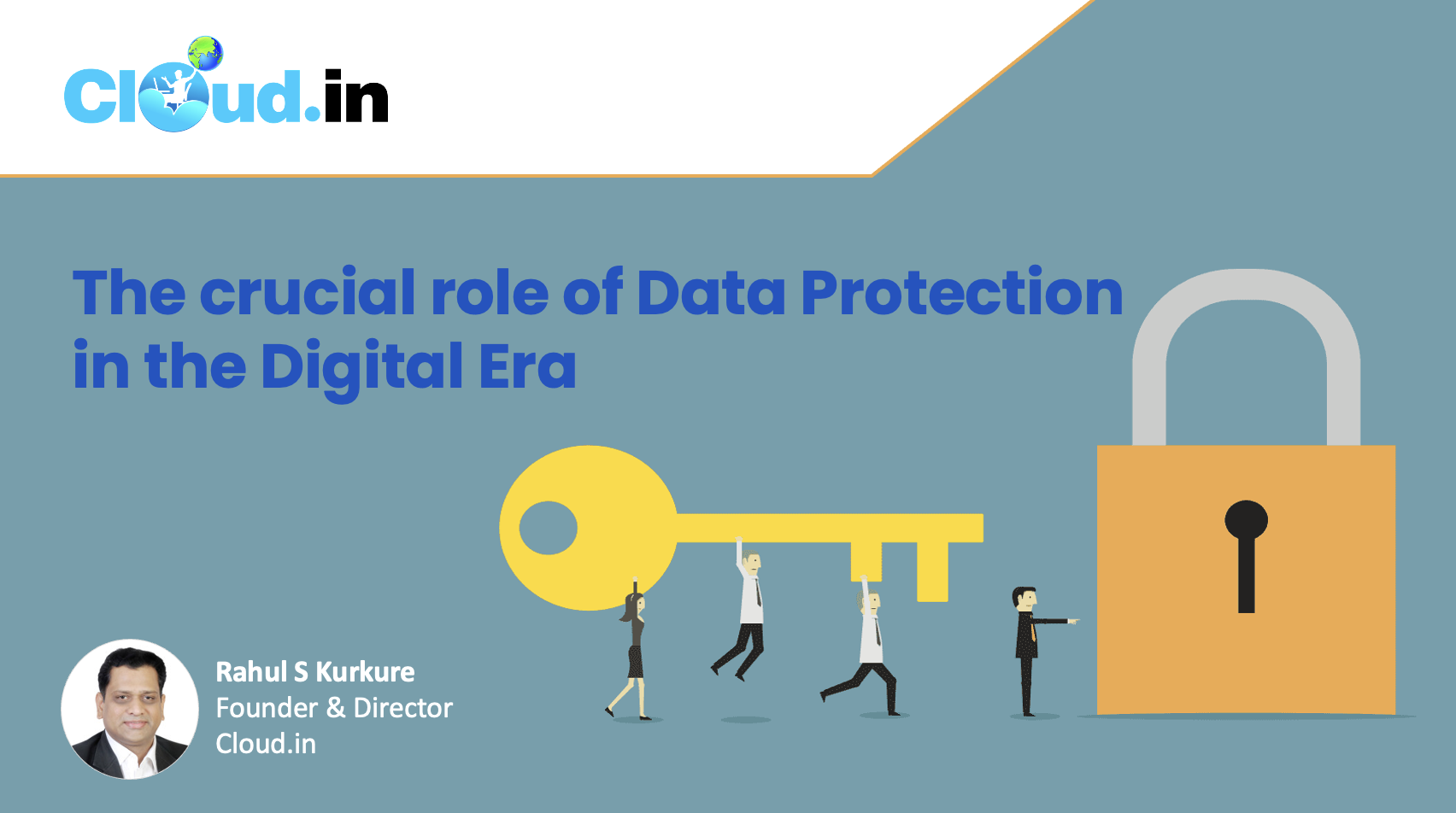The crucial role of Data Protection in the Digital Era - Rahul S Kurkure, Founder and Director of Cloud.in

In today’s digital and interconnected world, data is treasured and both individuals and organizations have to ensure it is protected, no matter what. It is data that has brought about a paradigm shift in our lifestyle and the way we communicate. Data, the new currency, or the new oil as it is commonly referred to is driving economies and fuelling innovation. As our reliance on digital technologies and online transactions soar, it is creating a fertile ground for cybercriminals. According to Cybersecurity Ventures, global cybercrime costs will reach USD 10.3 trillion by 2025.
Principles of Data
Protection
Every minute, a huge amount of data is being generated, stored, and leveraged, hence safeguarding it is very critical. Securing and protecting data from various threats is made possible with relevant data protection measures and strategies. The threats include unauthorized access, data breaches, cyberattacks, and accidental loss. The main goal of data protection is to ensure the confidentiality of data from being compromised, stolen, or altered by unauthorized individuals or entities.
Regulatory frameworks
The Data Protection framework should have certain key components such as
a consent-based approach, data minimization, fixing accountability, security
measures, and effective enforcement.
Governments and regulatory bodies across the globe have recognized the
need for comprehensive data protection laws.
The General Data Protection Regulation (GDPR) in the European Union is a
set of global standards for data protection. This empowers individuals to have
greater control over their data and also imposes huge fines on organizations
that fail to comply. The US has the California Consumer Privacy Act among
others and Canada’s Personal Information Protection and Electronic Documents
Act has introduced or updated their data protection laws. All these regulations
reflect the growing awareness of the need to protect personal data and hold
organizations accountable for data breaches.
India does not have a standalone law on data protection currently. In its absence, the Information Technology Act 2000 (IT Act) with the IT SPDI Rules 2011 have been protecting data in India. The Personal Data Protection (PDP) Bill was proposed in 2019. In November 2022, a Draft Bill was released for public consultation and the DPDP Bill 2023 was introduced in the Parliament in August 2023. The Bill applies to the processing of digital personal data within India where such data is collected online and offline and is digitized. It will also be applied to the processing of personal data outside India if it is offering goods or services in India.
Significance of Data
Protection
Robust data protection measures are crucial to safeguard data from cyber
threats and data breaches. Protection of data includes securing personal
credentials, financial records, intellectual property, and healthcare
information among others.
Data Protection is very critical to establish and maintain trust between
individuals and organizations. Consumers
will engage in online transactions and leverage digital services when they are
confident their data is handled responsibly and securely by organizations.
Compliance with data protection regulations is mandatory where
non-compliance can lead to significant fines and legal consequences.
Data Protection also enables responsible and ethical innovation where
data is leveraged for insights and decision-making in organizations. This is done while respecting privacy and
security.
It also empowers individuals as it gives them control over their
personal information where their privacy rights are respected and they have a
say in how their data is handled.
Protecting data involves implementing robust security measures such as
access controls, and encryptions, and performing regular security audits. Training employees in data protection helps
in the mitigation of data breaches and unauthorized access.
A robust data protection framework can drive economic growth, with foreign investment and trade where international partners are assured that data will be handled in a responsible manner.
Data Protection – Going
forward
In the coming days data protection will evolve further addressing new challenges by leveraging new-age technologies. Today, Artificial Intelligence (AI) and Machine Learning (ML) technologies are bringing a paradigm shift to data analysis and decision-making. Ensuring accountability and transparency in AI algorithms will become an important aspect of data protection. Stricter standards and regulations can help to address data security and privacy challenges that are caused due to the proliferation of IoT devices. As computing power increases, stronger encryption algorithms will be required to effectively secure data. This is where Quantum-resistant encryption methods will be required to address the threat posed by Quantum computers. Blockchain Technology also has the potential to improve data security and transparency and plays a role in data protection by delivering tamper-proof data storage and access control. The adoption of the Zero-Trust Security Model will become more and more prevalent, which works on the assumption that no one, whether inside or outside the organization can be trusted by default and demands continuous verification of identity and device security.
In the interconnected digital era, international collaboration on data
protection standards and practices will become crucial. Data protection ensures trust, privacy, and
security. Individuals are empowered to
control their data and organizations are made accountable for handling data
responsibly. With technology changing
the way we live and interact data protection will continue to be the top
priority of organizations. All
individuals, governments, and organizations should share the responsibility of
data protection to establish a secure world.



